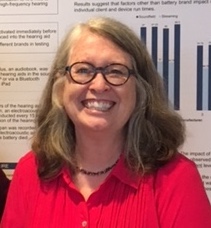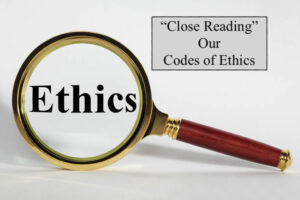 Kris English, PhD
Kris English, PhD
Professor Emeritus
The University of Akron
Like most health care professions, Audiology is guided by codes of ethics (e.g., by the American Academy of Audiology). Although codes of ethics are essential, they are not immutable. Over time, ethics evolve in response to new information and new insights (Calman, 2004). For instance, 40 years ago, it was not unusual – and considered ethical – to fit one hearing aid on a patient with a bilateral hearing loss without much thought. What changed? Initially, our knowledge base: we learned about neural plasticity and the effects of acoustic stimulation counteracting neural atrophy. This new knowledge then changed our practices, which then affected our ethical understanding of unilateral HA fittings.
Importantly, our codes of ethics tend to be broadly stated and do not single out specific changes in thinking. It’s up to us to interpret our codes of ethics in light of new evidence and accepted best practices (Palmer, 2012). Borrowing from the field of narrative medicine (Charon, 2017), we can consider this interpretative process as a type of “close reading,” defined as the thoughtful, critical analysis of text in order to develop deeper understanding (Moss et al., 2015).

What Else Has Changed?
We also now know a great deal more about patient-centered care (PCC) (e.g., Stewart et al., 2014), especially the primacy of “close listening” to patients’ stories (Irving & Charon, 2017). Like hearing aid practices, PCC as an evidence-based practice is usually not explicitly reflected in codes of ethics. However, a “close reading” of our ethics strongly suggests, as a predicate, the need to closely/fully listen and understand our patients’ narratives. “Close listening” is essential if we are to ethically provide services with compassion and meet our patients’ best interests.
Close listening to patient stories involves narrative competence, defined as “the fundamental human skill of recognizing, absorbing, interpreting, and being moved to action by the stories of others” (Charon, 2017, p. 126). Depending on our backgrounds in counseling, this concept may be obvious but we shouldn’t assume so; as Charon notes (supported by abundant evidence), “Despite the range of sources and skills bent toward the effort to improve clinical listening, patients continue to complain that their doctors don’t listen to them” (p. 158). One reason might be that “close listening” has not been recognized as an ethical practice.
Listening as an Ethical Practice
 A close reading of our ethics texts leads us to appreciate the ethical implications of listening (or not listening) to our patients. If we don’t fully absorb patient narratives, we are less likely to be “moved to action” toward personalized and comprehensive care. Promoting “close listening” (in the context of PCC) as an ethical practice warrants review and discussion within the profession.
A close reading of our ethics texts leads us to appreciate the ethical implications of listening (or not listening) to our patients. If we don’t fully absorb patient narratives, we are less likely to be “moved to action” toward personalized and comprehensive care. Promoting “close listening” (in the context of PCC) as an ethical practice warrants review and discussion within the profession.
References
Irvine, C. & Charon, R. (2017). Deliver us from certainty: Training for narrative ethics. In R. Charon, et al., The principles and practices of narrative medicine (pp. 110-133). NY: Oxford University Press.
Moss, B. et al. (2015). A close look at close reading: Teaching students to analyze complex texts. Alexandria, VA: ASCD.
Palmer, C. (2012). Ethics of best practice. In Teri Hamil (Ed.), Ethics in audiology: Guidelines for ethical conduct in clinical, educational, and research settings (2nd ed.)(pp. 237-245. Reston, VA: American Academy of Audiology.
Stewart, M. et al. (2014). Patient-centered medicine: Transforming the clinical method. Abington, UK: Radcliffe Medical Press.
